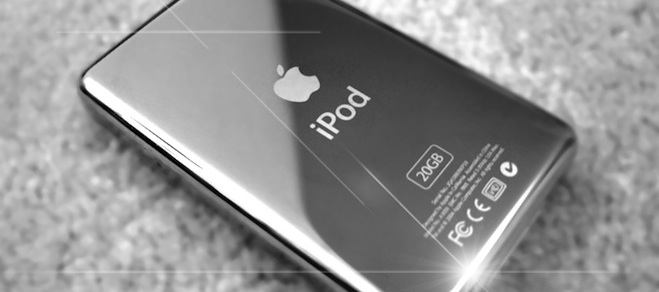Hurray! The government just nixed end-use certificates on iPods
But Mike Moffatt still has a few unanswered questions
Share

This article appeared first on Canadian Business.
The iPod tax dispute has had more twists and turns than an Alpine road.
First there was the discovery that the government’s announced changes to the General Preferential Tariff (GPT) system would lead to tariffs being charged on MP3 players produced in many countries (and subsequently higher retail prices), including iPods produced in China.
Then the government stated there will be no iPod tax since these goods can come in duty free under a special provision in the tariff code (9948.00.00). Then Sony stated that their claim of 9948.00.00 protection was denied and that they have already paid an iPod tax on their MP3 players. This iPod tax is part of a larger 16 million dollar dispute over back tariffs between a coalition of importers of consumer electronics and the Canadian Border Services Agency (CBSA). The CBSA claims the importers owe back tariffs because they failed to collect the necessary “end-use certificates” from consumers and thus are ineligible for 9948 protection. The importers claim that this end-use certificate requirement was placed on them retroactively and they have a legally binding Advance Ruling from the CBSA showing that end-use certificates are not required.
Confused yet? Well, the government has added another twist. This one, though, is good news for importers and consumers.
One of the more baffling aspects of the iPod tax dispute was the CBSA’s insistence that end-use certificates were required for retail sales of consumer electronics that claim duty-free protection through the 9948.00.00 provision. Collecting end-use certificates makes sense in some contexts, but serves absolutely no discernible purpose for retail sales and poses a burden on companies that was impossible to meet. In a previous post, I posed four questions to Finance Minister Flaherty about end-use certificates, one of which was “[w]hat is the purpose of end-use certificates for consumer electronics sold at retail?”
I was hoping for an answer. I received something even better. On the Friday before the Canada Day long weekend, the government quietly announced that it is eliminating the end-use certificate requirement entirely. Customs Notice 13-015 — Clarification of the Imported Goods Records Regulations states:
Effective June 28, 2013, for commercial goods imported and released duty free under tariff item 9948.00.00 in the List of Tariff Provisions set out in the schedule to the Customs Tariff, it will be clarified that the CBSA will allow the importer of the goods to attest to the intended use to be made of the goods in an article listed in tariff item 9948.00.00, rather than require a certificate or other such record to be signed by the user of the commercial goods attesting to their actual use.
This is fantastic news for both importers and consumers. A requirement for end-use certificates for retail sales is a non-starter and makes obtaining duty free status impractical, leading to higher retail prices for consumers.
There are still at least three open questions for which I would like to see answers:
1. Will the CBSA allow importers to claim duty free 9948.00.00 status for televisions with VGA connections and for MP3 players? (I suspect the answer is yes, but it would be helpful to have this confirmed.)
2. What, exactly, is the importer attesting to beyond “we intend to sell these to retail customers”? How could the importer possibly know how the consumer will use the device in a manner that will enhance the function of the host unit?
3. What happens now in the ongoing iPod tax dispute, where the CBSA retroactively assessed importers for millions of dollars in back tariffs for failing to collect end-user certificates from retail consumers? Although the notice states the move is “effective June 28, 2013?, the memo states the move is a “clarification” of the existing rules. Furthermore, an importer has already obtained a legally binding Advance Ruling from the CBSA that they believe proves that end-use certificates were not required in the first place for televisions with VGA connections.
I congratulate the government for eliminating a needless piece of red tape and look forward to further clarifications and simplifications of the Customs Tariff.